- News
- Reviews
- Bikes
- Components
- Bar tape & grips
- Bottom brackets
- Brake & gear cables
- Brake & STI levers
- Brake pads & spares
- Brakes
- Cassettes & freewheels
- Chains
- Chainsets & chainrings
- Derailleurs - front
- Derailleurs - rear
- Forks
- Gear levers & shifters
- Groupsets
- Handlebars & extensions
- Headsets
- Hubs
- Inner tubes
- Pedals
- Quick releases & skewers
- Saddles
- Seatposts
- Stems
- Wheels
- Tyres
- Tubeless valves
- Accessories
- Accessories - misc
- Computer mounts
- Bags
- Bar ends
- Bike bags & cases
- Bottle cages
- Bottles
- Cameras
- Car racks
- Child seats
- Computers
- Glasses
- GPS units
- Helmets
- Lights - front
- Lights - rear
- Lights - sets
- Locks
- Mirrors
- Mudguards
- Racks
- Pumps & CO2 inflators
- Puncture kits
- Reflectives
- Smart watches
- Stands and racks
- Trailers
- Clothing
- Health, fitness and nutrition
- Tools and workshop
- Miscellaneous
- Buyers Guides
- Features
- Forum
- Recommends
- Podcast
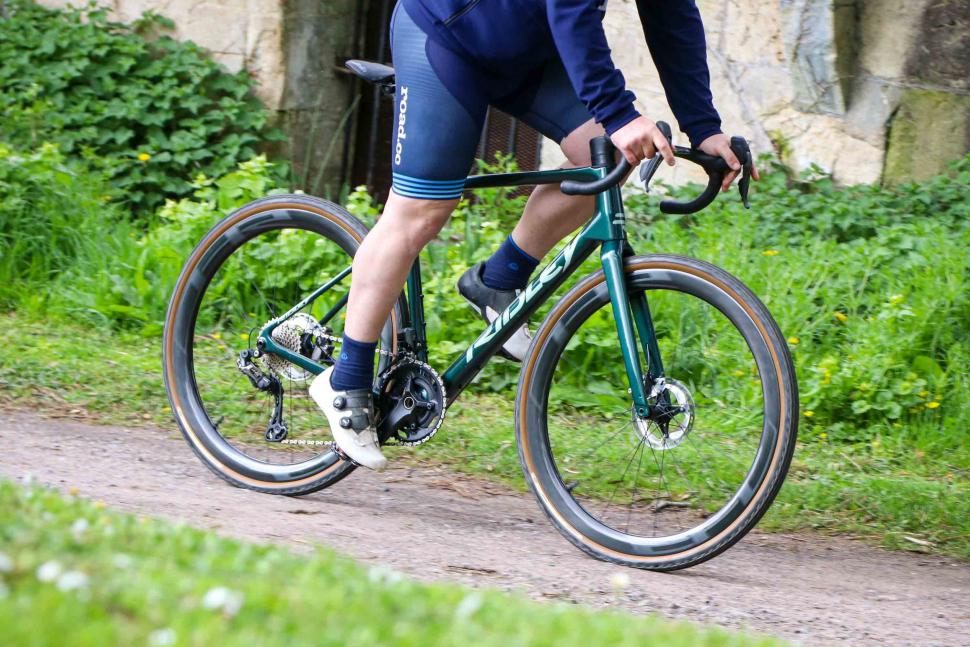 Ridley Grifn
Ridley Grifn£5,935.00
VERDICT:
Great ride quality, with its versatile geometry and a good spec list making it an N+1 killer
Quick on road and gravel
Geometry ideal for long distance rides
Comfortable ride quality
Huge amount of customisation
Limited tyre clearance compared with pure gravel bikes
Integrated handlebar limits the fitting of lights
Mudguard mounts don't suit standard full guard designs
Weight:
8,620g
Contact:
At road.cc every product is thoroughly tested for as long as it takes to get a proper insight into how well it works. Our reviewers are experienced cyclists that we trust to be objective. While we strive to ensure that opinions expressed are backed up by facts, reviews are by their nature an informed opinion, not a definitive verdict. We don't intentionally try to break anything (except locks) but we do try to look for weak points in any design. The overall score is not just an average of the other scores: it reflects both a product's function and value – with value determined by how a product compares with items of similar spec, quality, and price.
What the road.cc scores meanGood scores are more common than bad, because fortunately good products are more common than bad.
- Exceptional
- Excellent
- Very Good
- Good
- Quite good
- Average
- Not so good
- Poor
- Bad
- Appalling
The Ridley Grifn is the company's allroad bike, with a blend of road and off-road geometry and components to make it versatile for all kinds of rides and adventures. There are a few compromises on both sides of the road and gravel spectrum, but if you want to spend the majority of your ride time on the blend point of the two then you'll be impressed by the performance of the Grifn.
> Buy now: Ridley Grifn for £5,935 from Ridley
Let's be honest, with the tyre clearances available on the latest road bikes, any of them could be considered 'allroad'. After all, a pure race machine like the Handsling A1R0evo can take 32mm rubber, which would allow it to use something like the 30mm Ritchey Alpine JB tyre, and Merida's Scultura Endurance range will take 35mm – that's the same tyre width I used on the 200km gravel event, the Dirty Reiver, in 2017.
Some are more capable than others, though, like the Grifn.
Ride
Take a glance through the geometry table and you'll see that the Grifn is definitely not a gravel bike. The tube lengths and angles are very similar to that of an endurance road bike, and that is exactly how it behaves on the tarmac.
Our build came with a set of gravel tyres fitted, but with a switch to some wide slicks, WTB's 36mm Exposure TCS tyres, and some wide and deep carbon wheels – Prime's Doyenne 56s – the Ridley became a great commuter. The wide tyres coped with the poor surfaces of the back lanes, while a weight of around 8.6kg meant it felt responsive, with a bit of a zing in its step.
> How much would it cost to insure a Ridley Girfn? Compare quotes from over 30 insurance providers
The handling on the road is very neutral, which means it's an easy bike to ride the majority of the time. It's only on fast and technical descents where you have to work a bit harder, compared with when you are riding a road race bike.
The slacker front end means the steering isn't quite as direct as the race bike, so you have to plan your line more precisely as you don't have the speed there to make fast tweaks if needed.
Anywhere else, though, it's a lot of fun to ride, and a great bike for getting the miles in. With a bar bag and frame bag attached to the Grifn, I enjoyed days out covering miles, tapping on the pedals and enjoying the scenery.
You can get the Grifn in many builds, and if you were to go for a pure road one, as long as you don't want to race, I reckon you'll be very happy with your choice. With some lighter wheels and narrower tyres than I was using, you could drop some weight to easily bring the Grifn down to around 8kg and up the performance.
With that weight and a very stiff frame, it's got the credentials if you want to give it a little dig. Acceleration is pretty nippy, and getting out of the saddle for a sharp climb feels rewarding too.
Switch to fatter gravel tyres and you can go exploring. With this 2x setup you are limited to 38mm in width, but choose a 1x build and you can up that to 40mm.
Tyres of 38mm are good enough for hardpacked routes and byways, the kind of things we have hundreds of criss-crossing the UK. It's the ideal setup to chop and change between road and trail on a single set of tyres without too much of a compromise.
On these kinds of tracks the Grifn behaves well. The 1,021mm wheelbase of this medium works well alongside the gravel-esque lower bottom bracket height of 73mm, which brings stability and offsets the quicker handling that you'd find on a pure gravel bike.
You can carry plenty of speed; it's a bit of a gravel racer, if you like, only ever feeling a bit out of its depth when things become technical.
It's not as easy to ride on twisty singletrack-style byways even in the dry, and high-speed descents bring on a challenge of their own. I'm not saying it can't take them on, you just need to be confident in your handling abilities and need some skill to get the most out of the Grifn.
On my main 33-mile gravel test route, which has a bit of everything, it was on those technical sections where the Grifn was slower compared with other gravel bikes I ride on it, though not by a massive amount in the grand scheme of things. There's probably only four or five miles of the route where it felt a bit out of its depth, but the key thing is that it coped with it. I didn't need to resort to hike-a-biking, I could keep riding, and everywhere else it was a fun and capable bike. It's much more than just a road bike that can take wide tyres.
For wide open gravel tracks like the military routes in my neck of the woods, it's great, and with a bit of planning it's a versatile machine that can easily take on a lightweight multi-terrain adventure.
From a comfort point of view the Grifn's ride is good overall. It's not as plush as some, but it doesn't come across as harsh anywhere, even with whichever tyres were fitted pumped up nice and firm. There is some decent damping at the rear end and from the fork legs, which certainly helps out with fatigue on longer rides.
Frame and fork
The Grifn's carbon fibre frame and fork are full of neat design cues to give it versatility and/or a very clean, smooth look.
The fully integrated handlebar and stem found on our model directs the wires and brake hoses in through the head tube until they need to reappear from the frame or fork.
It certainly looks very smart and keeps everything out of the way of any frame bags or anything. Mind you, I don't know how easy it will be to work on when it comes to servicing it down the line.
You also get an internal seatclamp as well, with an expanding wedge design inside the seatpost, which also adds to the clean look. A rubber cover keeps the water and grit out.
As for mounts, there are plenty dotted around the frame, with fixings for bottle cages in the usual position on the down and seat tubes. You get three bolts on each rather than the usual two, to give you some adjustment for your bottles should you be running frame bags, or if you just want to use larger bottles.
You also get two cage bosses underneath the down tube.
There are mounting points for mudguards too, with positions on the seatstays to attach a bridge to carry the rear one. The mounting points, on the fork at least, aren't in the traditional position and Ridley's website shows a Grifn built up with what look like in-house mudguards fitted.
On the top tube you'll find a couple of bolts attaching a plate over a small recess. This position can be used for a top tube bag, or you can use it to run a strap through so you can carry extras like food, or an inner tube.
The frame and fork also have cable routing for a front and rear dynamo light.
Overall, I think it's a good looking frameset, a mixture of curves and angular edges, all of which can be enhanced by the large selection of paint and decal colours on Ridley's configure section of the website. Some are included in the price; some are extra.
Ridley has gone for a band-on front mech which continues the clean look when running the Grifn in a 1x chainset setup.
A nod to its road DNA is the use of a press-fit bottom bracket. Because of the conditions most gravel bikes see – lots of dust, mud and water – many brands go for a threaded option to stop any unwanted creaks from ingress. But with all of the rain that the review period saw, I had no noise issues from the BB at all.
Sizing and geometry
The Grifn is available in five sizes, ranging from XS to XL, with top tube lengths ranging from 525mm to 605mm.
The medium here has a top tube length of 565mm, with a head tube height of 165mm. The seat tube length is 520mm as the top tube slopes ever so slightly. The chainstays are 420mm in length, while the BB drop is 73mm.
Angle-wise, we're looking at 72 degrees for the head tube, and 73.5 degrees for the seat tube. Stack and reach work out at 587mm and 391mm respectively.
Build & pricing
Ridley offers a selection of stock builds on its UK site, with a huge number of options available for you to configure; it's not just the paint colour you can tweak.
Builds start with a Shimano 105 mechanical groupset with hydraulic brakes, Shimano RS wheels and Vittoria Zaffiro Pro tyres for £2,909.
Ours comes with a Shimano GRX 2x Di2 groupset, the full-carbon integrated handlebar, carbon Forza (Ridley's in-house brand) Levanto G wheels, and Vittoria Terreno Dry tyres.
The green paintjob is a customisable option for an extra £99, bringing the full build to £5,935.
If you don't want to use Shimano's gravel or road groupsets there are other options including SRAM AXS electronic, and if you want a 1x groupset but with the spread of a 2x then Ridley offers the Classified hub system in tandem with the GRX Di2.
In terms of performance, the GRX Di2 we have here works brilliantly. Unlike Shimano's road Di2 groupsets, GRX hasn't made the jump to 12-speed yet, remaining as an 11-speed setup.
The 48/31-tooth chainrings are paired to an 11-34T cassette. This gives an ideal set of gears for various terrains – low enough for fast, flowing gravel and ideal for the road too, with only a small sacrifice of the top-end ratios of a compact chainset.
The shifting response at the levers and mechs is instantaneous and precise, even when coated in dirt, while the shifter buttons are large enough that you can carry out the gear change on bumpy terrain, plus their position sits naturally to where your fingers lie.
The hoods have the ideal shape to stop your hands being bounced over the top when the going gets rough, helped by ridges embossed on the hood rubber.
The flat section on the front of the brake lever also helps you get a solid grasp when trying to pull hard on rough downhills. I can remember when the first gravel bikes arrived using road levers and it was difficult to brake hard on off-road downhills as the levers are rounded and smooth. The GRX levers stop this, and when paired with a flared bar give a very natural position.
Braking power was absolutely spot on, with loads of feel at the levers for plenty of modulation. The bike we were sent had seen plenty of miles and I'm guessing that maybe the pads had become contaminated at some point as the noise they made when they hit the rotors was horrendous. Lots of squealing and some slight judder. I've ridden GRX Di2 loads of times, and I know that this is definitely not the norm.
Finishing kit
The finishing kit is quality stuff for the money.
The integrated bar and stem is available in a range sizes, length and width-wise. It limits the amount of tweakability compared with a standard setup, if you want to change the height for a longer ride, for instance, but it's not something that would bother me.
The shape is great, with a wide flat section for resting your palms, and the shallow fall of the flared drops also offers plenty of hand positions.
The lack of cables allows you to fit a bar bag without issue, and it comes with an out-front computer mount. Fitting lights is going to be a faff, though, if you plan on longer jaunts in the winter months.
The seatpost is carbon fibre with an alloy cradle and it does the job it's intended to: it held the saddle in position, and didn't slip into the frame when the terrain got rough.
It's a Selle Italia SLR saddle and its slim, racy nature sits well with the Grifn's ride style. I found it very comfortable thanks to the shape and minimal padding.
Wheels and tyres
The Forza Levanto G wheels are 38mm in depth with an internal rim width of 19mm, so not as wide as some gravel wheels, but with the clearance on offer on the Grifn they are more than suitable. They're recommended for use with 25mm to 45mm tyres, and as you'd expect are fully tubeless compatible.
They use 24 spokes front and rear, and the Forza 3 Beaufort hubs accept Center Lock brake rotors. At a claimed weight of 1,535g they feel light, and they certainly feel stiff too. They took on plenty of abuse during the review period and performed really well overall. Tough enough for gravel, light enough for road.
The Terreno Dry tyres impressed Matt when he reviewed them on off.road.cc, saying that they're smooth rolling, and offer good puncture resistance and reliable grip.
As their name suggests, they are ideal for dry conditions or on hardpacked surfaces, but with minimal tread there isn't a huge amount of grip in the mud, also known as 'typical UK gravel conditions'.
For winter or wet weather use, something like the Panaracer GravelKing EXT+ would be a better choice as it has deeper tread and comes in a 38mm width.
Value
In this build, the Grifn is priced at the higher end of the market, but it's still quite competitive against similar bikes.
Take the 3T Exploro Racemax Ekar, which we reviewed back in October last year. It scored highly thanks to its racy nature, giving it the ideal responsiveness and handling for both road and gravel use. The build cost £4,999 using Campagnolo's Ekar groupset, which is 1x only but comes with a 13-speed cassette.
Tyre clearance on the 3T is up to 42mm, so a little larger than the Grifn, but you aren't getting as high a level of finishing kit as the Ridley. You do get a carbon handlebar but it's an individual setup rather than integrated, and you only get Fulcrum's entry-level 900 DB alloy wheelset instead of the carbon on offer here.
> What is an allroad bike? Is this new bike breed really an N+1 killer?
Fara's F/AR is an allroad bike that impressed me very much when I reviewed it. Not only does it look stunning, it also rides very well on the road and away from it. It is limited to 38mm slicks, so the Ridley has the edge there, but they both come with plenty of mounts and great finishing kit for the money.
Built up with Shimano Ultegra Di2, Fulcrum Airbeat 400 DB carbon wheels, and a Fara integrated stem/handlebar setup, it's currently priced at €6,499. Fara is based in Norway and ships direct. Due to a trade agreement between Norway and the UK there are no taxes or fees to add on, so that works out at £5,765.
Dolan offers a range of gravel bikes in aluminium (the GXA), titanium (the GXT), and carbon fibre, the GXC. All share the same geometry and are more focused towards hardpacked surfaces and road than pure gravel, but they do have larger tyre clearances than the Grifn.
With upgrades configured to create a similar build to the Grifn, the GXC costs £4,837.93. That's with an alloy Deda 100 stem and handlebar pairing and 30mm-deep Alpina carbon wheels.
Conclusion
I was disappointed when it was time to return the Grifn to Ridley as I had found it such a fun and useful bike to ride. It took care of my commuting duties, I spent many of my weekends covering big miles on it, switching between roads and byways, and if I only had time for a quick blast for an hour so it still had the performance to be exciting and fun to ride.
The entry-level prices are good, and even this high-spec build is competitive too, so if you only want or have the budget (or space) for one bike, this is a great choice.
Verdict
Great ride quality, with its versatile geometry and a good spec list making it an N+1 killer
road.cc test report
Make and model: Ridley Grifn
Size tested: Medium, 565mm
About the bike
List the components used to build up the bike.
Groupset: Shimano GRX RX815 Di2
Chainset: 48/31T
Cassette: 11-34T 11-speed
Rotors: 160mm F/R
Handlebar: Forza carbon integrated
Seatpost: Forza
Saddle: Selle Italia SLR
Wheels: Forza Levanto G
Tyres: Vittoria Terreno Dry 700c x 38mm
Tell us what the bike is for and who it's aimed at. What do the manufacturers say about it? How does that compare to your own feelings about the bike?
Ridley says, "Meet the Grifn: the allroad bike that's fast and capable on all kinds of surfaces: from smooth tarmac all the way to dirt roads. This bike is carefully designed for riders searching for that one bike that can do it all.
The Grifn is made for riding hard and long while making memories and discovering new roads. It's made to go the extra mile. Ridley combined the speed of a thoroughbred road bike with the comfort of a gravel bike in creating the Grifn.
With a 990 gram frame (unpainted, in size medium), the Grifn is a fast and comfortable road bike ready to hit the offroad with its maximum tire clearance of 38mm. There's even the possibility to go to 40mm tires if you run a 1x drivetrain, or add fenders and dynamo powered lights enabling the Grifn for any use: it's suitable for road riding and gravel grinding as well as commuting and long distance riding.
The surface won't be limiting the rider anymore. The Grifn is the perfect match for riders who don't want to have to choose between road and gravel. Whether you're in search of a gravel bike for exploring backcountry roads and enjoying the most scenic and car-free roads or want to occasionally take your road bike off the beaten path to break the habit, the Grifn is the right bike for it. With the Grifn, Ridley is breaking with the N+1 rule of bike ownership.
The name Grifn refers to the mythical beast griffin, a fabled animal with the body of a lion and the head and wings of an eagle. This hybrid creature symbolizes the ruling over two realms: the earth and the sky. Because of the bike's versatility, Ridley's Grifn is also capable of ruling over two realms: road and gravel. As a Grifn rider you'll reign both tarmac and dirt roads. Seeing that you can go any direction with the Grifn, this bike can be built as both road bike and gravel bike. It's completely customizable to fit the rider's wishes. This way the Grifn is perfect for road and gravel riding, commuting and long distance adventures.
With a completely new bike design comes new shapes and a new geometry. The geometry of the Grifn is adapted to both road and gravel riding and was designed using Ridley's KOG philosophy (Kanzo Optimized Geometry). This means that the geometry is fine-tuned to obtain the handling that is the best fit to the type of riding the bike is designed for. This is reflected in some key numbers in the geometry, like the head tube angle and the bottom bracket drop.
The result is a fast, reactive yet stable and well-balanced allroad bike. The Grifn is a road focused gravel bike that is comfortable enough for long days on rough roads, but still aggressive enough to line up for a Gran Fondo. It's the perfect companion for endurance riding.
All its features, its geometry and the possibility to ride both a 1x and a 2x drivetrain, make the Grifn an extremely versatile bike giving you endless possibilities of use. In essence, Ridley is breaking the N+1 rule of bike ownership with the Grifn."
It is a capable and comfortable machine on and off the road.
Where does this model sit in the range? Tell us briefly about the cheaper options and the more expensive options
There is no range as such, with just a few set builds, but even those are configurable to create the bike you want.
Frame and fork
Overall rating for frame and fork
9/10
Tell us about the build quality and finish of the frame and fork?
A very good quality frame and fork that come with a five-year warranty.
Tell us about the materials used in the frame and fork?
Both the frame and fork are created from carbon fibre.
Tell us about the geometry of the frame and fork?
The geometry is similar to that of an endurance road bike when it comes to the handling, but other parts like the bottom bracket drop are more gravel focused.
How was the bike in terms of height and reach? How did it compare to other bikes of the same stated size?
The height and reach numbers are mentioned in the review, and are fairly typical for this size of drop bar bike.
Riding the bike
Was the bike comfortable to ride? Tell us how you felt about the ride quality.
Ride quality from the frame and fork is very good. Helped by the ability to run wide tyres.
Did the bike feel stiff in the right places? Did any part of the bike feel too stiff or too flexible?
There is plenty of stiffness in the lower part of the frame where it is needed.
How did the bike transfer power? Did it feel efficient?
Power tranfer is delivered well, with a good spread of gears and a relatively low weight for a bike like this.
Was there any toe-clip overlap with the front wheel? If so was it a problem?
No.
How would you describe the steering? Was it lively neutral or unresponsive? Neutral on the road, but feels quicker off-road.
Tell us some more about the handling. How did the bike feel overall? Did it do particular things well or badly?
The handling is biased towards the road, but it manages to keep it just about neutral on loose surfaces; the only place it sacrifices a bit of directness is on high-speed or technical sections of gravel.
Which components had the most effect (good or bad) on the bike's comfort? would you recommend any changes?
I liked the saddle shape, and the flat top section of the handlebar gives extra hand positions to reduce fatigue.
Which components had the most effect (good or bad) on the bike's stiffness? would you recommend any changes?
The Forza wheels showed no signs of flex when riding hard.
Which components had the most effect (good or bad) on the bike's efficiency? would you recommend any changes?
The GRX chainset ratios are low enough for off-road sections while allowing you to spin well on the road.
Rate the bike for efficiency of power transfer:
8/10
Rate the bike for acceleration:
8/10
Rate the bike for sprinting:
8/10
Rate the bike for high speed stability:
7/10
Rate the bike for cruising speed stability:
8/10
Rate the bike for low speed stability:
8/10
Rate the bike for flat cornering:
8/10
Rate the bike for cornering on descents:
7/10
Rate the bike for climbing:
8/10
The drivetrain
Rate the drivetrain for performance:
9/10
Rate the drivetrain for durability:
8/10
Rate the drivetrain for weight:
8/10
Tell us some more about the drivetrain. Anything you particularly did or didn't like? Any components which didn't work well together?
A great groupset to use in terms of perofmance and it copes very well with poor weather and conditions.
Wheels and tyres
Rate the wheels for performance:
8/10
Rate the wheels for durability:
8/10
Rate the wheels for weight:
8/10
Rate the wheels for comfort:
7/10
Tell us some more about the wheels.Did they work well in the conditions you encountered? Would you change the wheels? If so what for?
A solid set of wheels with a performance edge for riding on the road.
Rate the tyres for performance:
8/10
Rate the tyres for durability:
8/10
Rate the tyres for weight:
7/10
Rate the tyres for comfort:
8/10
Tell us some more about the tyres. Did they work well in the conditions you encountered? Would you change the tyres? If so what for?
A very good set of tyres for switching between surfaces, as long as they are dry.
Controls
Rate the controls for performance:
8/10
Rate the controls for durability:
8/10
Rate the controls for weight:
8/10
Rate the controls for comfort:
8/10
Tell us some more about the controls. Any particularly good or bad components? How would the controls work for larger or smaller riders?
A good selection of kit, and while the handlebar does limit the use of lights, I did enjoy its overall shape. The saddle is a big plus point too.
Your summary
Did you enjoy riding the bike? Yes
Would you consider buying the bike? Yes
Would you recommend the bike to a friend? Yes
How does the price compare to that of similar bikes in the market, including ones recently tested on road.cc?
Compared to the bikes I have mentioned in the review, the Grifn is well priced when you include things like integrated carbon cockpits, carbon wheels and an electronic groupset.
Rate the bike overall for performance:
8/10
Rate the bike overall for value:
5/10
Use this box to explain your overall score
Being an all-rounder often brings the risks of compromises that stop a bike actually being very good at anything specific, but I don't think the Grifn is like that. It works as a road bike very well, especially if you want the ability to run wide tyres and an endurance style geometry, while it's also highly capable as a 'light' gravel bike too. The amount of customisation brings a feeling of individuality to the bike, and you can spec it according to your budget while still getting the high quality frameset, allowing you to upgrade over time. Overall, it's very good.
About the tester
Age: 44
I usually ride: This month's test bike My best bike is: B'Twin Ultra CF draped in the latest bling test components
I've been riding for: Over 20 years I ride: Every day I would class myself as: Expert
I regularly do the following types of riding: time trialling, commuting, club rides, sportives, fixed/singlespeed,
Since writing his first bike review for road.cc back in early 2009 senior product reviewer Stu has tested more than a thousand pieces of kit, and hundreds of bikes.
With an HND in mechanical engineering and previous roles as a CNC programmer/machinist, draughtsman and development engineer (working in new product design) Stu understands what it takes to bring a product to market. A mix of that knowledge combined with his love of road and gravel cycling puts him in the ideal position to put the latest kit through its paces.
He first made the switch to road cycling in 1999, primarily for fitness, but it didn’t take long for his competitive side to take over which led to around ten years as a time triallist and some pretty decent results. These days though riding is more about escapism, keeping the weight off and just enjoying the fact that he gets to ride the latest technology as part of his day job.
Latest Comments
- Aluminium can 2 sec ago
Frame weight is about a hundred grams less than a CAAD 12 disc, which can be picked up cheap these days on gumtree. Heck, get the CAAD12 non disc...
- Dnnnnnn 3 hours 53 min ago
You're too kind. They just seem to be unpleasant trolls.
- ktache 4 hours 35 min ago
I realised that the lads crash is a rare set of circumstances, and the numbers in the race would add complexity, but don't smart watches have...
- Jogle 4 hours 48 min ago
And in Southampton today we had another example of those entitled ambulances going through red lights without a care for anyone else!...
- belugabob 6 hours 11 sec ago
Because the number of 40% tax payers buying downhill bikes on the scheme, whilst lower rate tax payers (who are more likely to actually cycle to...
- TheBillder 6 hours 3 min ago
The spokes and nipples are not anodised for environmental reasons, but the rims are. Which is a lot more metal. Hmm...
- Zebulebu 6 hours 35 min ago
Yeah, they'll be great after being crushed in your jersey pocket for three hours. ...
- Rendel Harris 6 hours 42 min ago
I'm afraid so, anything operated by TfL apart from the Woolwich ferry and the Silvertown Tunnel bike bus when it opens next month.
- Backladder 7 hours 50 min ago
Its only "meh" because we all experience similar passes every ride, I'm sure if they got their finger out and worked out the distance it would be...


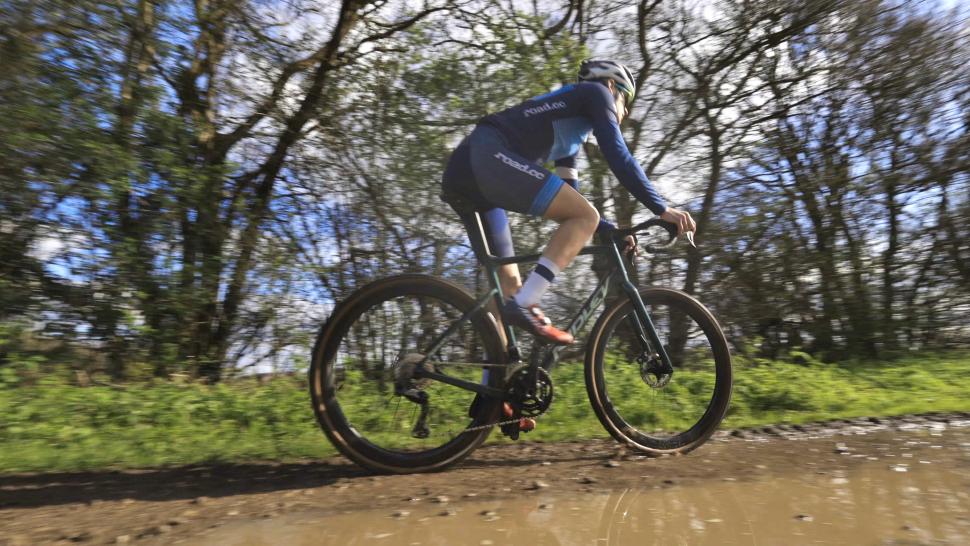

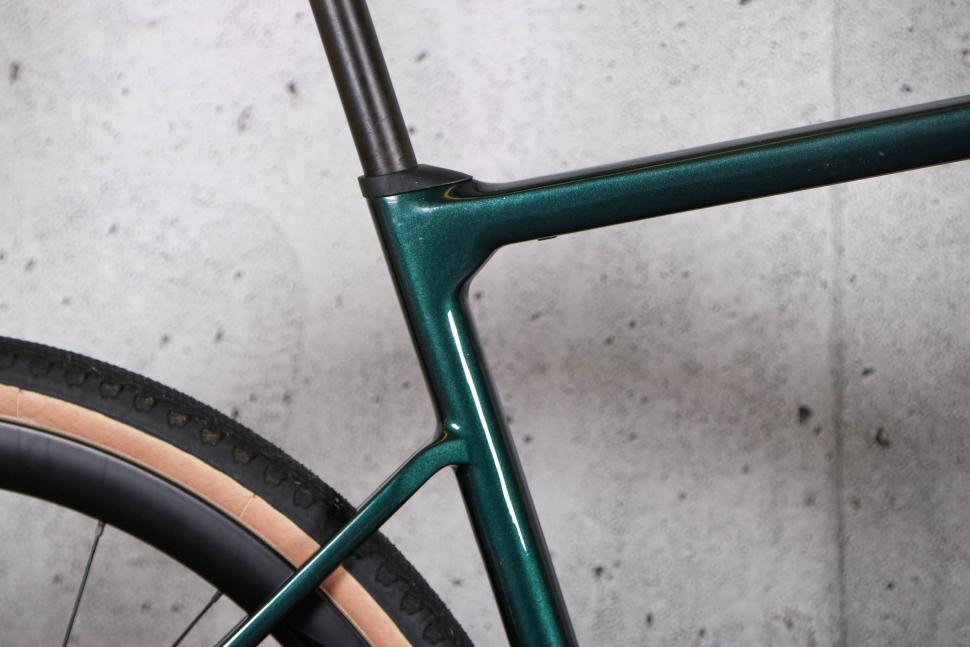
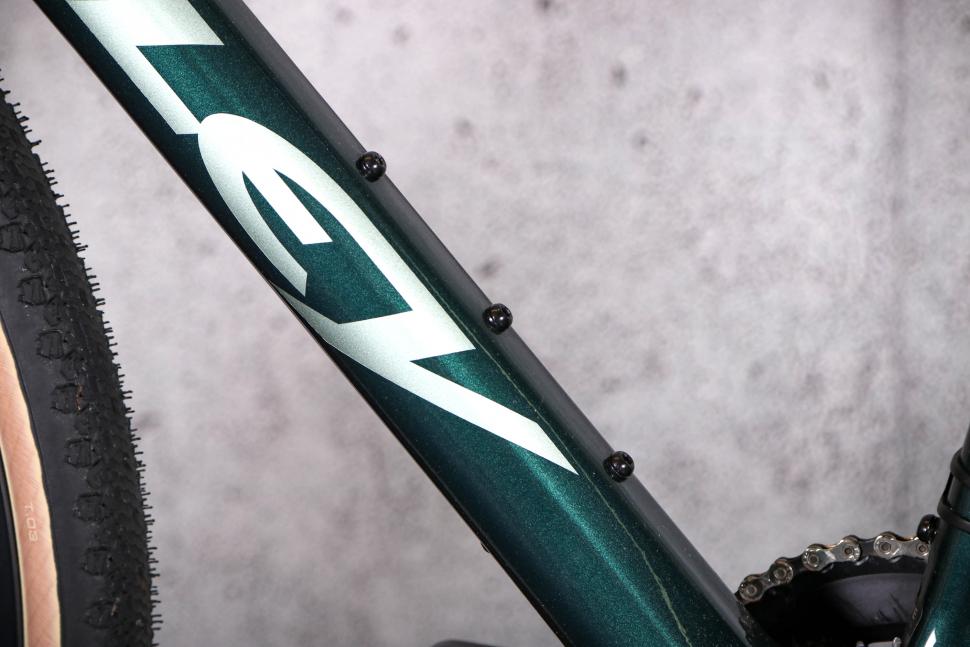
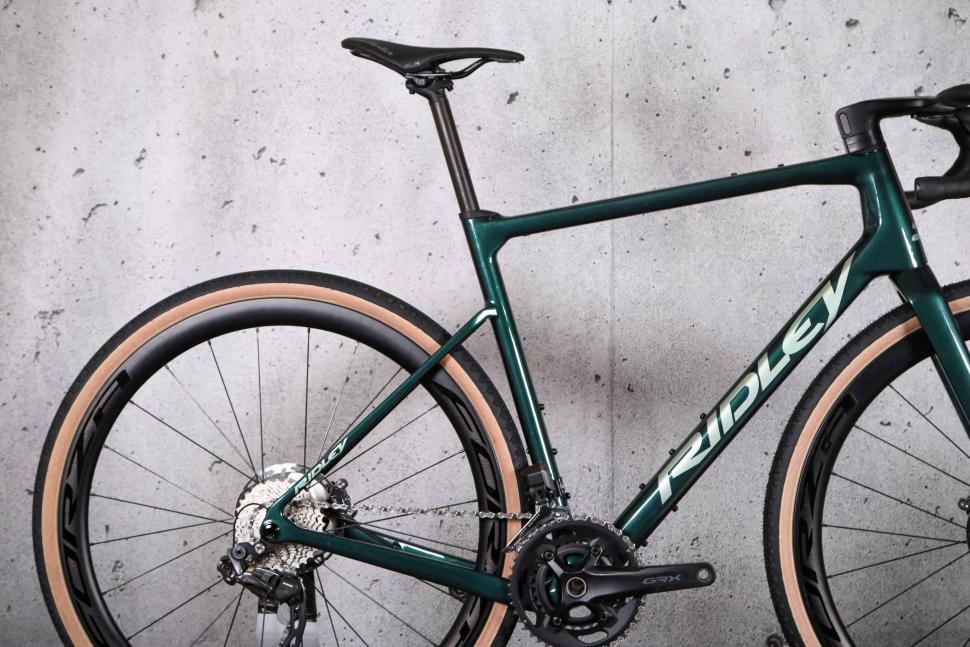
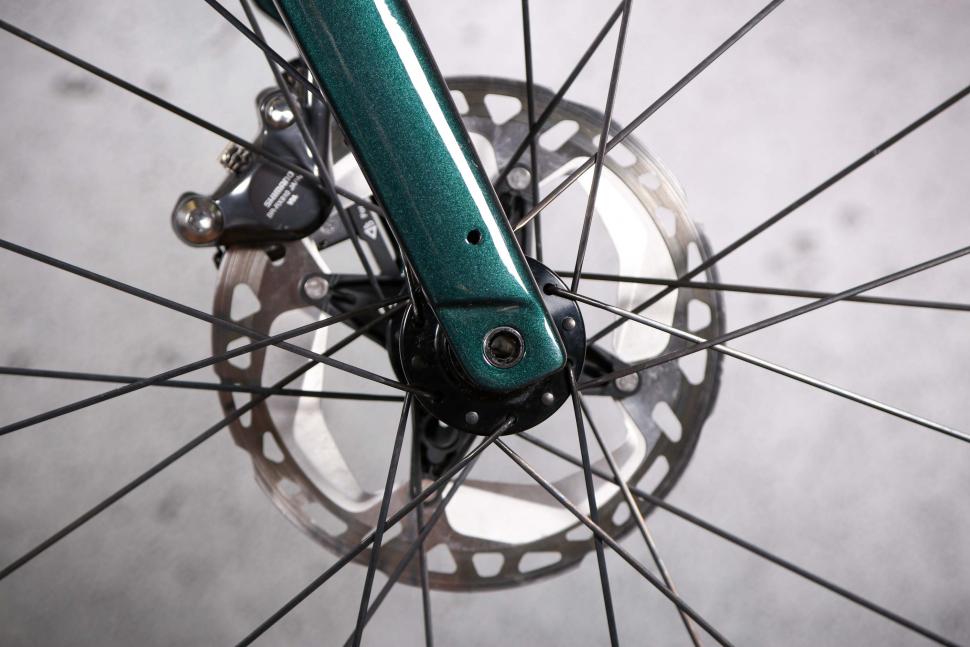

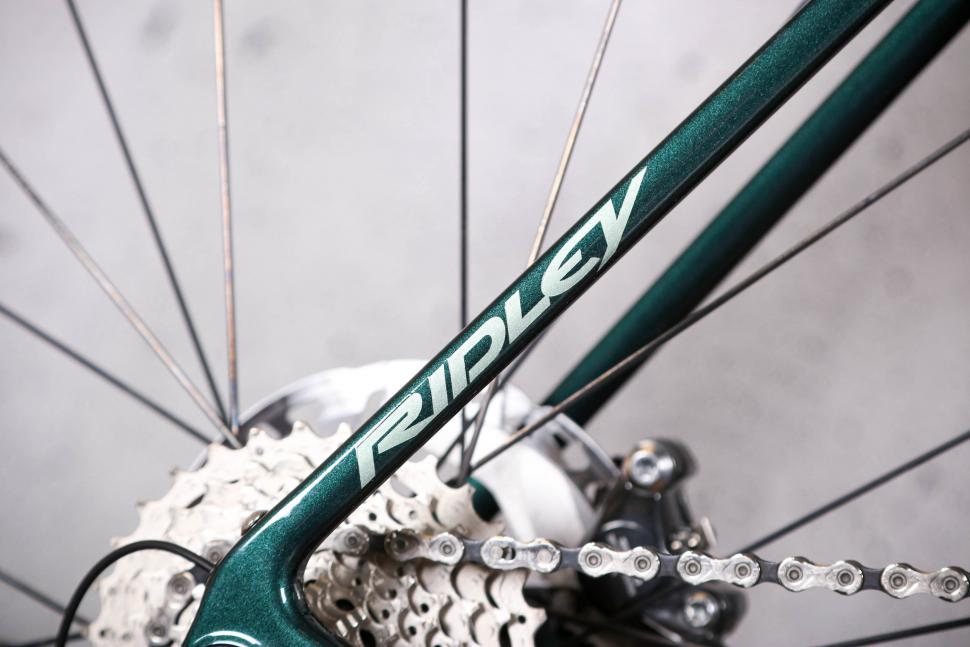
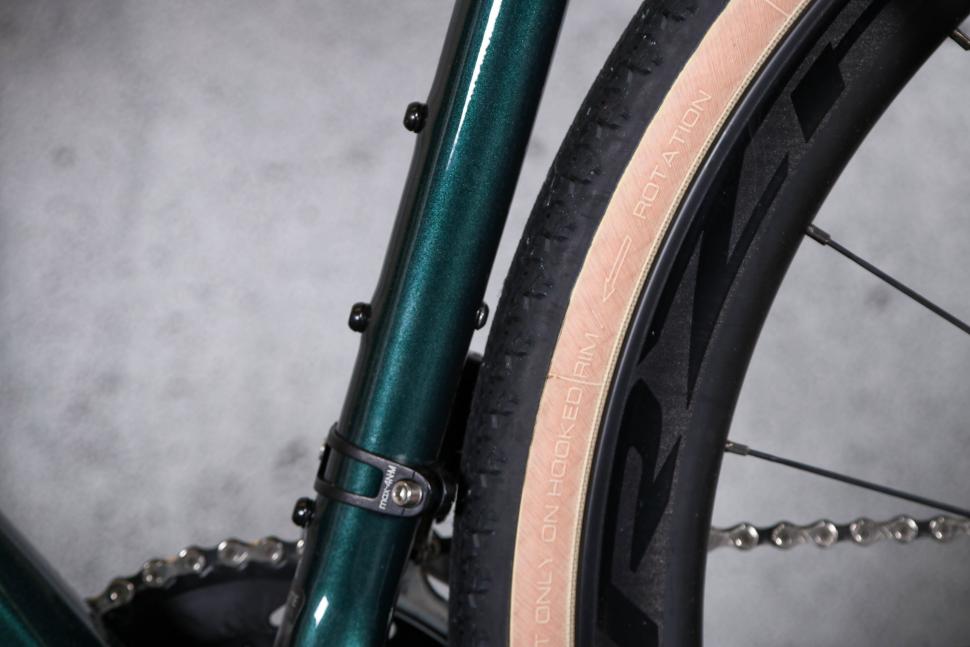
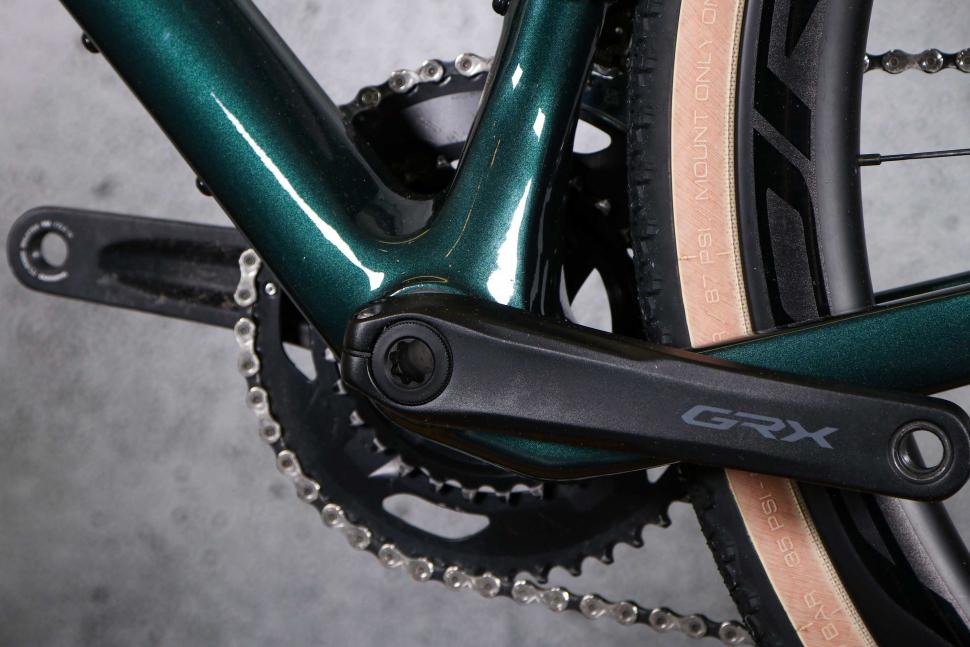








































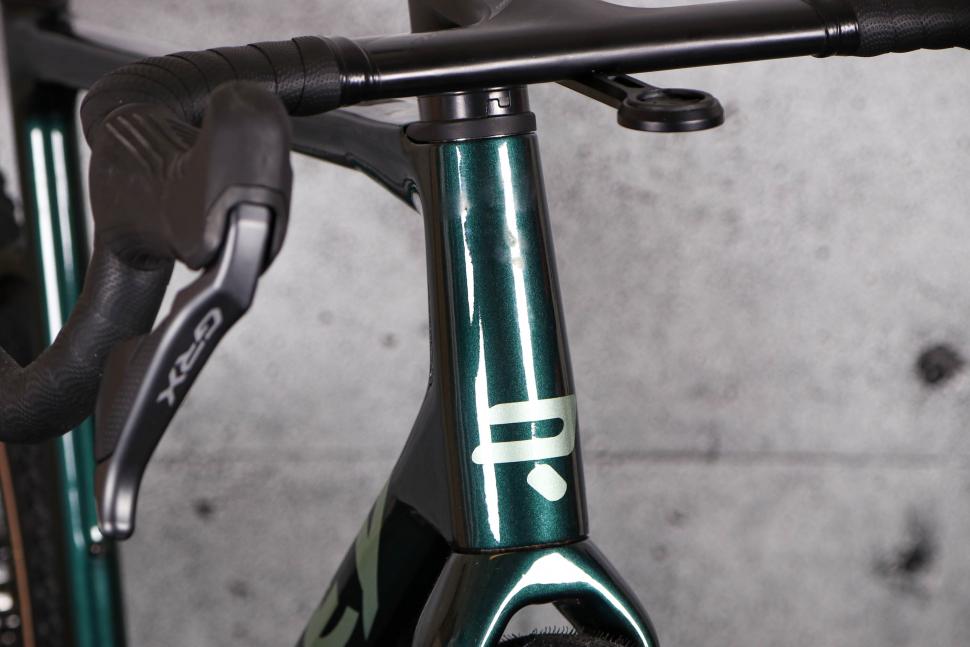
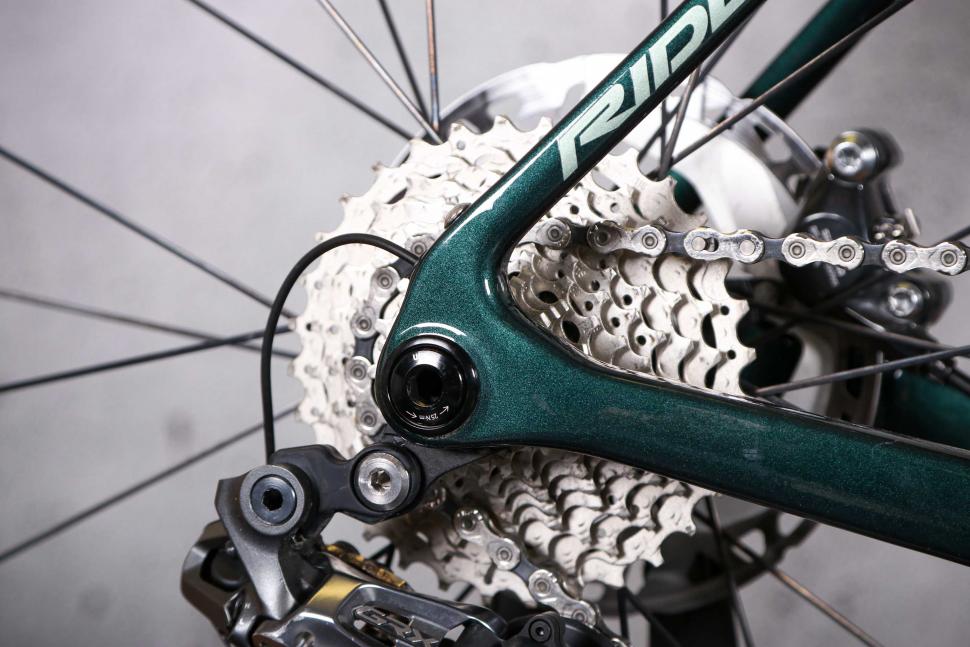

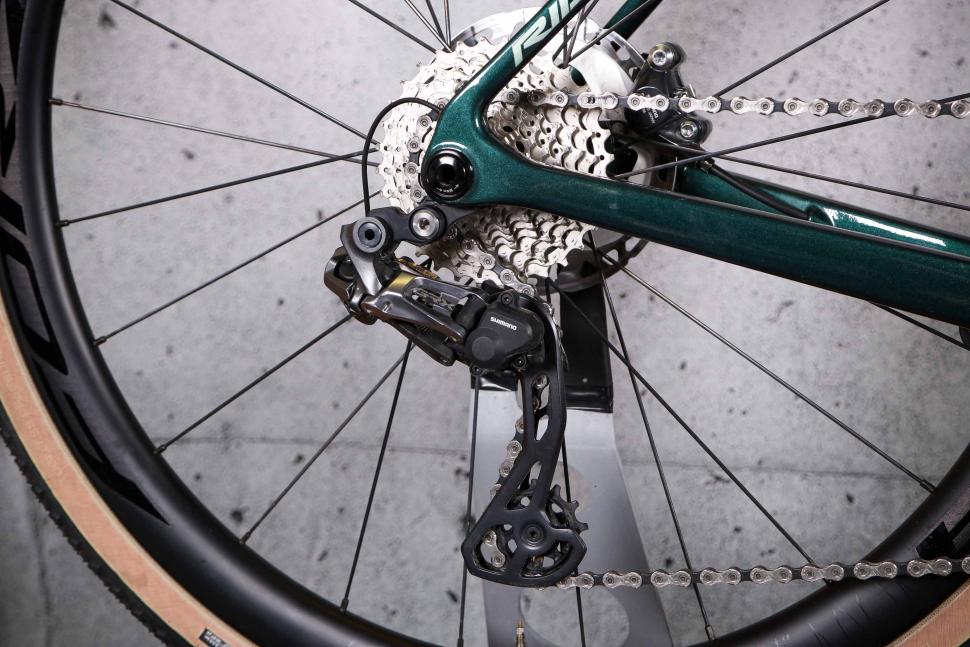

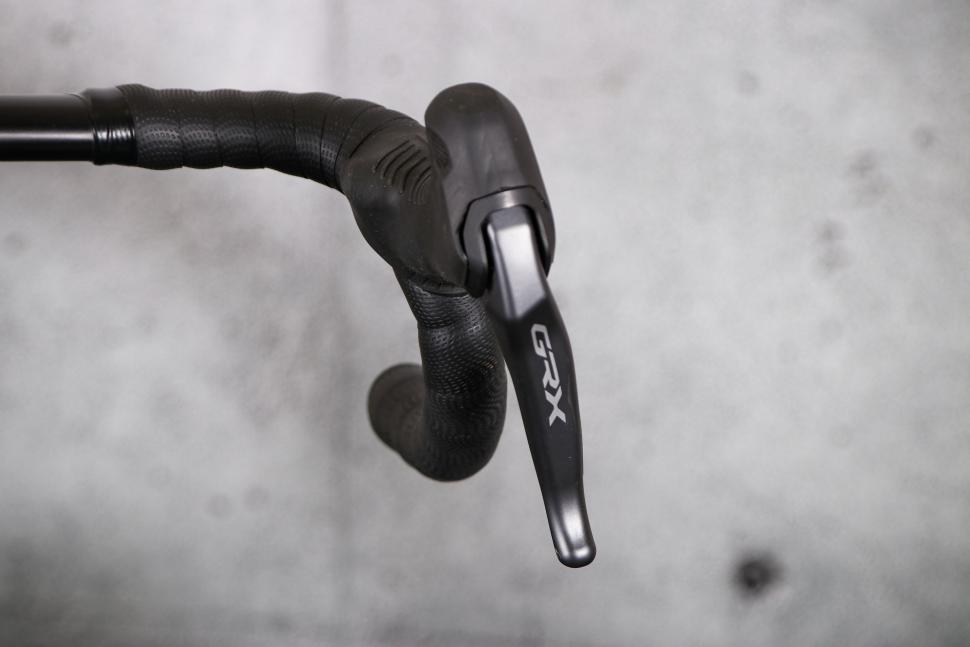
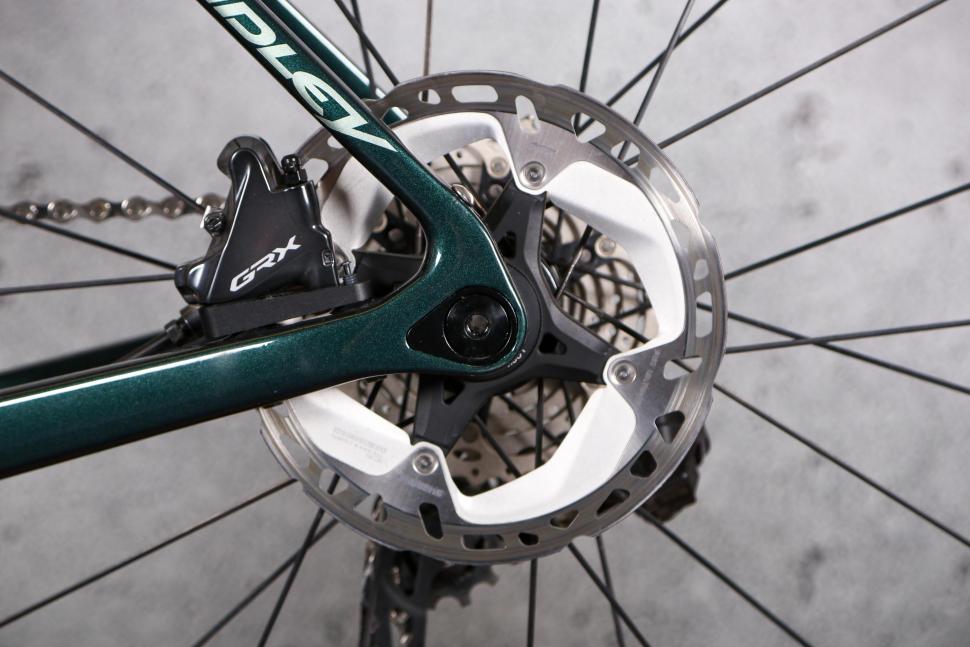
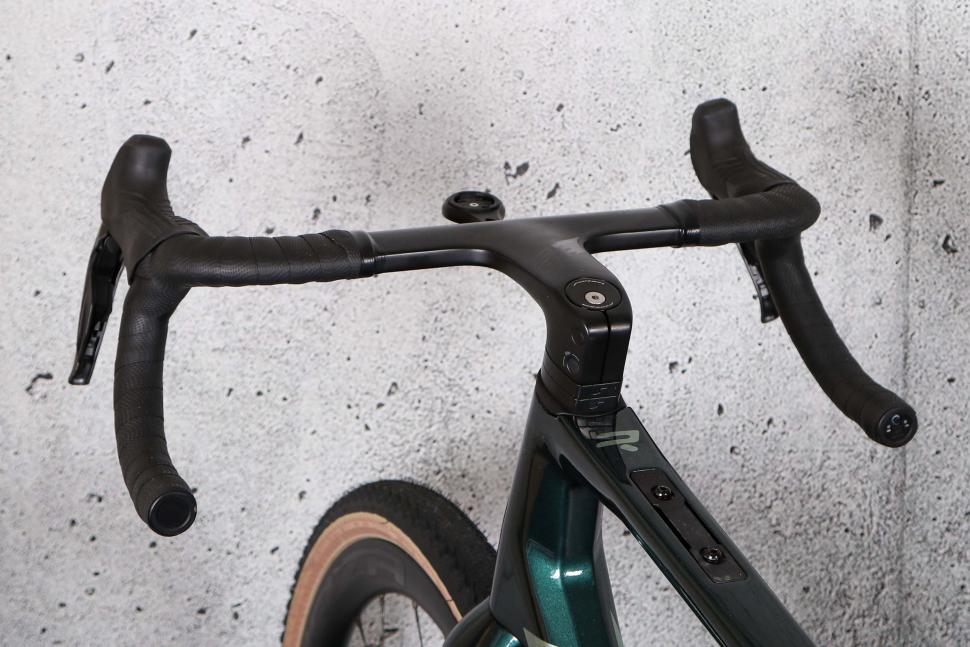
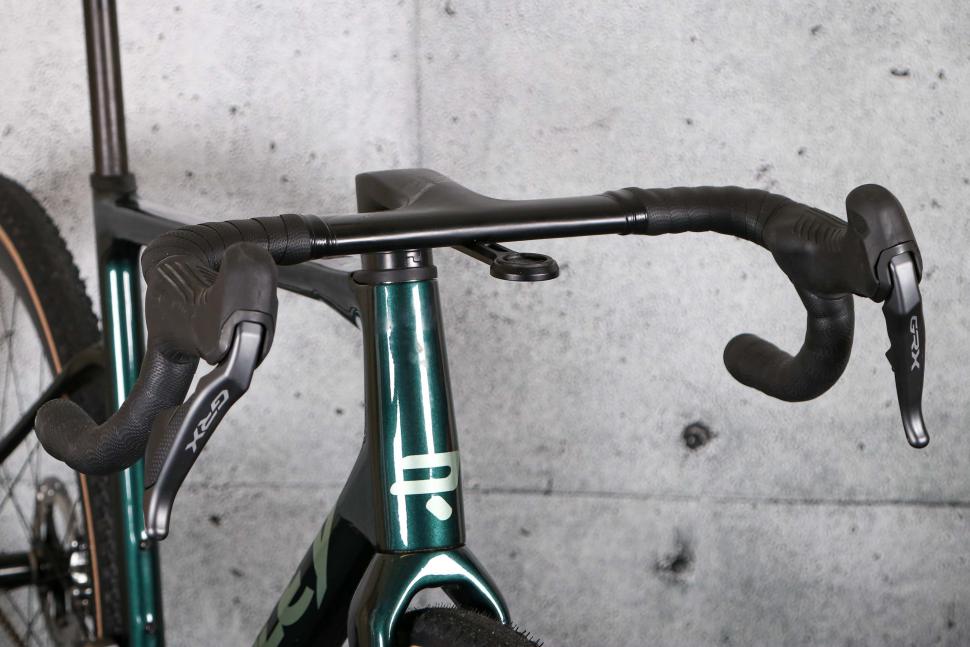
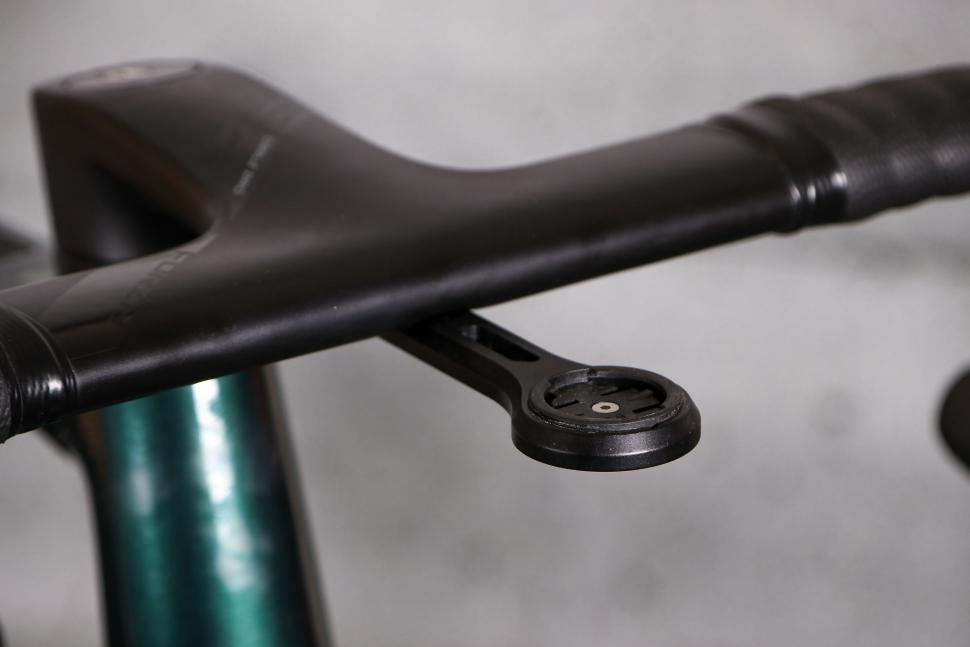

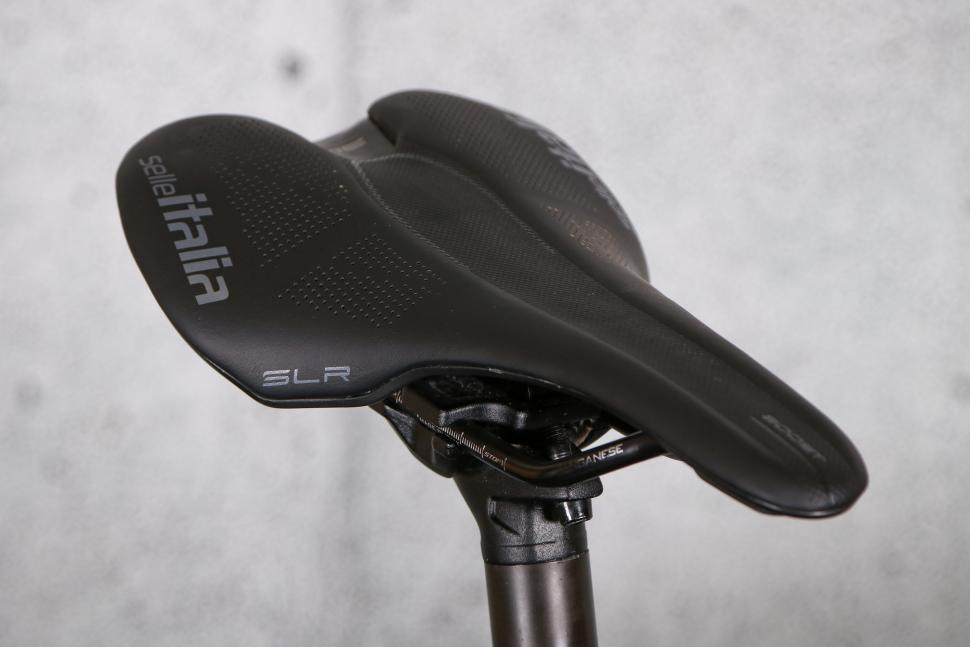
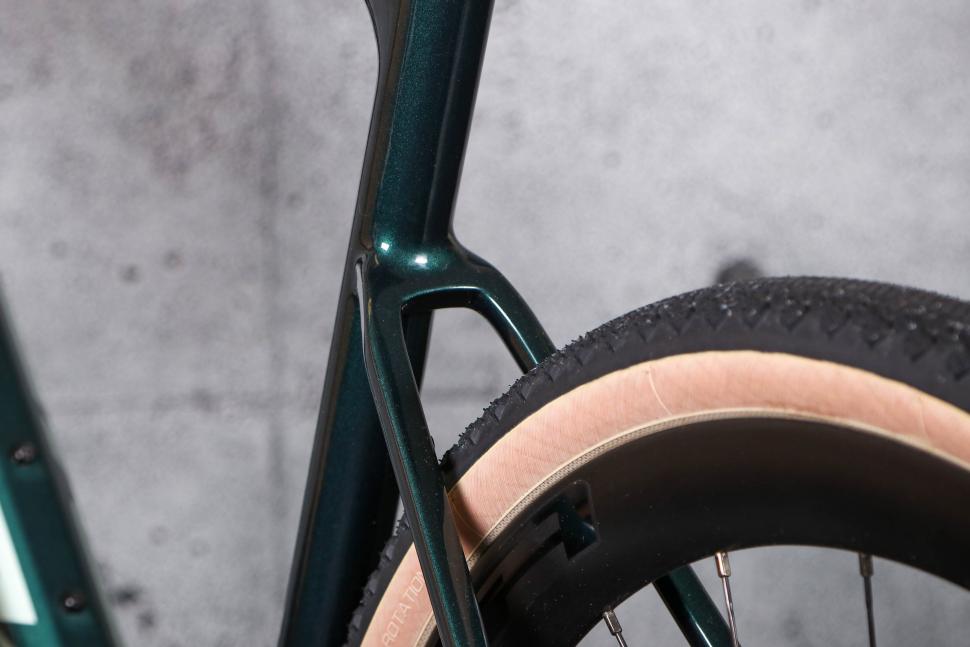
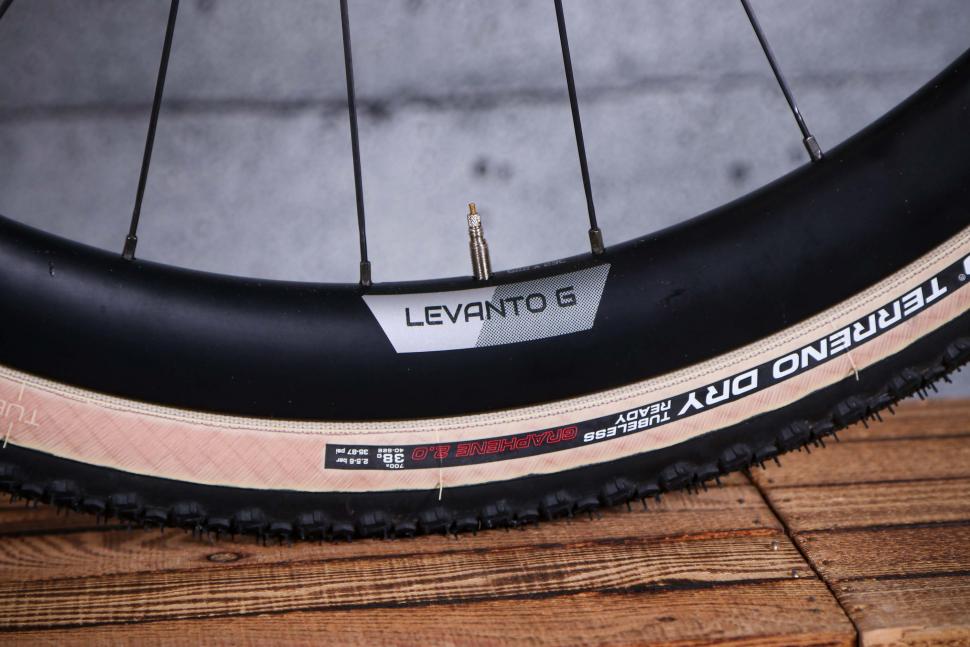
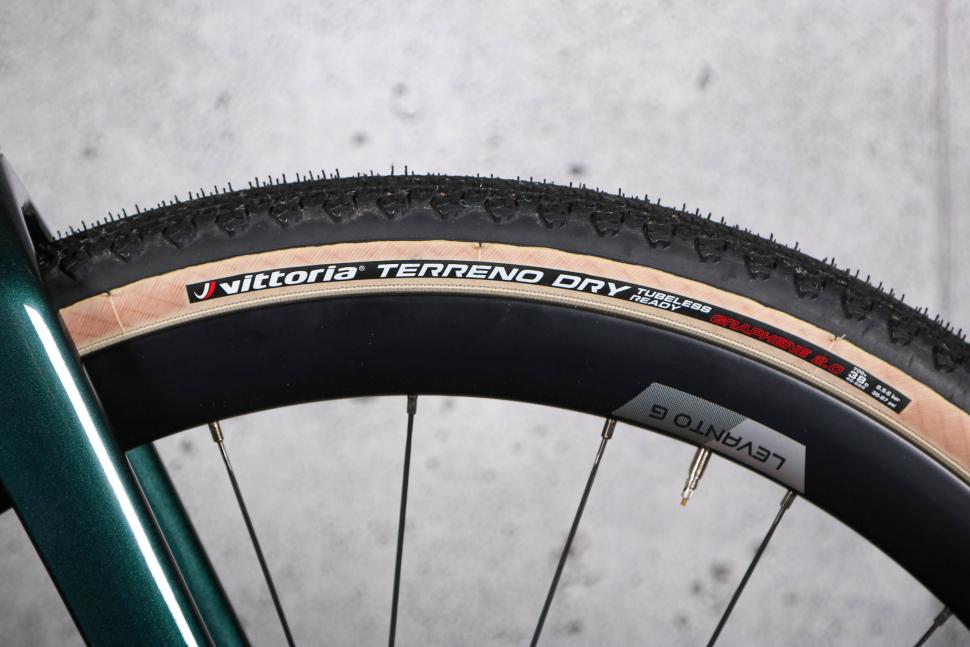
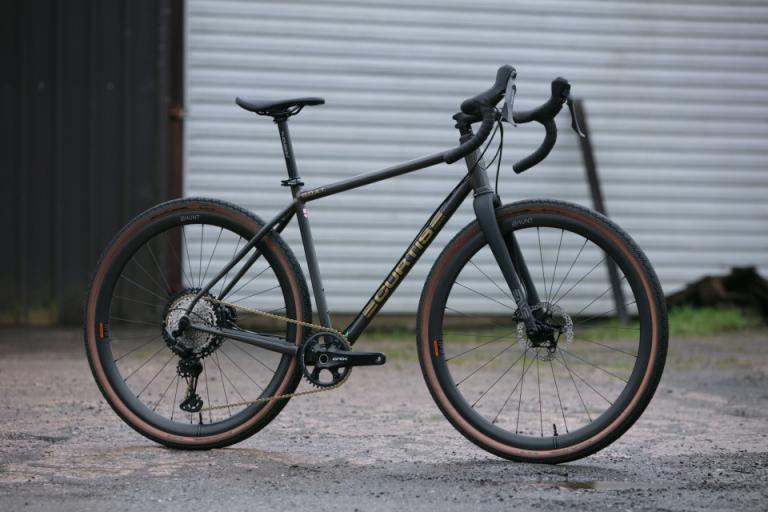

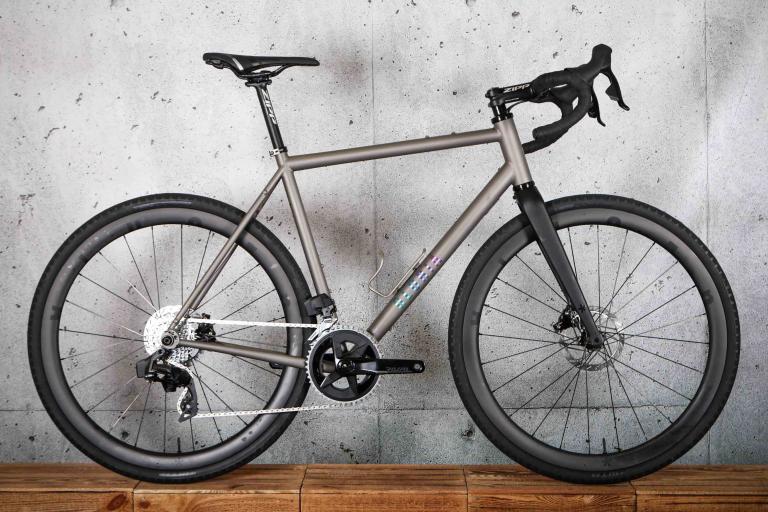
Add new comment
3 comments
I wish websites would stop with this silly dichotomy of press-fit = creaky, threaded fit = not creaky. This is far too generalised and doesn't consider the nuances of bike manufacture at all. I would wager that a well-engineered press-fit system (requiring frames to be manufactured to tolerance - not especially hard, have they heard of go/no-go gauges?) and a well-engineered threaded system (correctly tapped, faced and fitted at the right torque) are comparable.
Even the old argument of home serviceability fails because only BSA or Italian threaded BB tools are easily available, at least at present - T47, SRAM DUB or other BB removal tools, for instance, are still incredibly varied and can often be as expensive as the cheapest bearing press/drift set (as I've found recently). Even my local mech doesn't have them!
How does a £6000 bike stand up to off road mud, grit etc?
Road bikes get a lot less abuse and their components wear out pretty fast.
Not sure I'd want such an expensive gravel bike.
My experience of a rather older and cheaper Ridley carbon gravel bike is that the press fit BB is a problem, but the rest is ok. I don't ride much gravel (railway paths etc are about my limit), but this is my winter / rain / commuting bike and puts up with a lot, including Edinburgh roads which are utter shite.
The OE BB was an FSA 386 Evo, and when the first one died, a LBS said they could only replace like for like unless I changed the chainset at the same time. Once the FSA rings wore out (obligingly quickly), the far better LBS I now use fitted a screw-together BB and. 105 chainset, and it's been fine since.
Mudguards are not easy to fit but not impossible - mounts half way the inside of the fork legs mean some careful bending of stays.